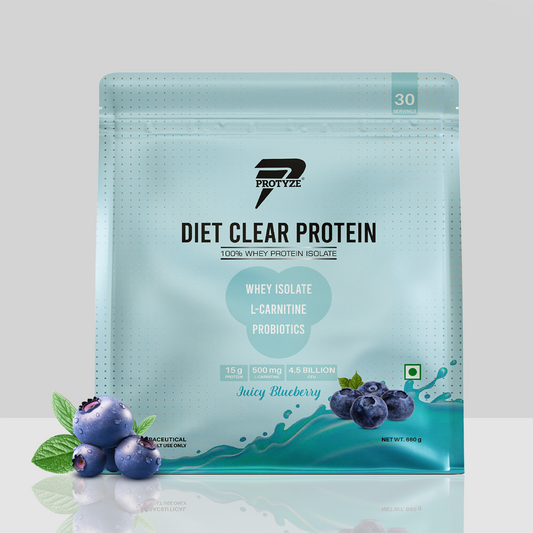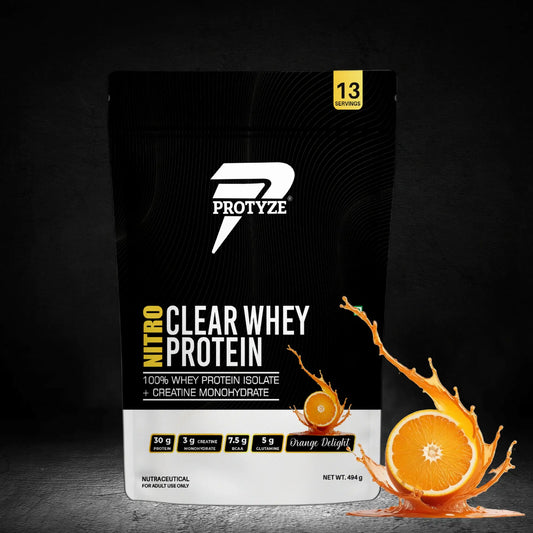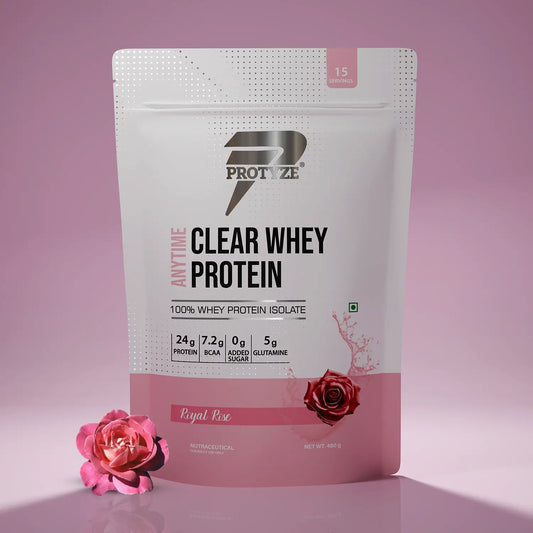Acne isn’t just a teenage problem anymore—it’s affecting fitness lovers, gym-goers, and even adults who eat “clean.” If you’ve recently added protein shakes to your routine and noticed sudden breakouts on your face, chest, or back, you’re not imagining things.
One of the most searched questions today is: “Does whey protein cause acne?”
The answer isn’t as simple as yes or no.
While protein is essential for muscle recovery, fat loss, and overall health, the type of protein you consume—and how your body responds to it—can directly impact your skin. Hormones, dairy compounds, insulin spikes, and additives hidden in many protein powders may silently trigger acne flare-ups.
In this blog, we break down the real science behind protein and acne, explain why some whey proteins worsen breakouts, and reveal how switching to a clean, clear whey protein can help you build muscle without sacrificing clear skin.
Protein and Acne: Separating Fact from Myth
1. The Role of Dairy in Acne
Most traditional protein powders are made from whey, a by-product of milk. Several studies have shown that dairy consumption can worsen acne in some individuals. Milk proteins can influence insulin and IGF-1 (Insulin-like Growth Factor) levels, which in turn may increase oil (sebum) production in the skin—one of the main causes of acne.
2. Whey Protein and Hormonal Response
Whey protein, while effective for muscle recovery, can spike insulin levels more than other protein sources. This may stimulate sebaceous glands to produce more oil, clog pores, and create an environment where acne-causing bacteria thrive.
In fact, dermatologists have observed that athletes and gym-goers who consume high amounts of whey protein often experience acne flare-ups, especially on the face, chest, and back.
3. Not All Protein Causes Acne
It’s important to understand that protein itself doesn’t cause acne—the type and quality of protein matters. Whole-food protein sources like chicken, fish, lentils, and beans are generally not linked to breakouts. The issue arises mainly with dairy-based whey protein, especially if it’s low-quality, unfiltered, or mixed with artificial additives.
Other Factors That Influence Acne with Protein Use
-
Sugar and Additives in Protein Powders: Many commercial protein powders are loaded with artificial sweeteners, fillers, and thickeners, which can irritate the gut and skin.
-
Excessive Protein Intake: Consuming more protein than your body can use may strain digestion and indirectly affect skin health.
-
Poor Hydration: Protein metabolism increases the body’s water requirement. If you’re not drinking enough water, your skin can become dehydrated and more prone to inflammation.
- Lifestyle and Genetics: Stress, lack of sleep, and family history of acne can amplify the effect of whey protein on breakouts.
Science-Backed Alternatives for Acne-Prone Skin
If you want the benefits of protein without the acne risk, choosing a clean and clear protein source is crucial. Here are some alternatives supported by research:
-
Whey Isolate (Clear Form): Ultra-filtered, lactose-free whey isolates contain fewer acne-triggering compounds compared to regular whey.
-
Plant-Based Protein: Pea protein, rice protein, and blends are gentler on the skin and free from dairy hormones.
- Hydrolyzed Protein: Pre-digested proteins that are easy on the gut and less likely to trigger inflammation.
Does This Mean You Should Quit Protein?
Not at all. Protein is essential for building muscle, repairing tissues, boosting immunity, and even supporting healthy skin structure (thanks to collagen synthesis). The key is choosing the right kind of protein—one that fuels your body without aggravating acne.
Protyze: The Clean, Clear Protein for Skin-Friendly Nutrition
At Protyze, we understand that fitness should never come at the cost of your skin health. That’s why we developed Clear Protein, made with a patented process that removes impurities, excess lactose, and unwanted additives often linked to acne breakouts.
-
Dairy-light & stomach-friendly – No heavy, creamy residue that triggers skin oiliness.
-
No added sugars, fillers, or thickeners – Just pure, high-quality protein your body can absorb quickly.
- Clear, refreshing flavors – Light on digestion and easy to mix, without bloating or skin irritation.
With Protyze, you get the muscle recovery and performance benefits of protein—without worrying about unwanted acne flare-ups.
Final Takeaway
Protein doesn’t cause acne—but the wrong protein can.
Low-quality whey protein, excess lactose, dairy hormones, and artificial additives are common acne triggers, especially for people with sensitive or acne-prone skin. That’s why many gym-goers experience breakouts after switching to regular whey shakes—not because protein is bad, but because their skin doesn’t tolerate heavy dairy-based formulas.
The solution isn’t quitting protein—it’s choosing smarter.
Protyze Clear Whey Protein Isolate is designed for people who want results without side effects. Its ultra-filtered, lactose-free, clear formula supports muscle recovery while staying light on digestion and gentle on the skin. No added sugars, no fillers, no creamy residue—just clean protein that works with your body, not against it.
If acne has been holding you back from using protein supplements, switching to Protyze Clear Protein could be the difference between compromising your skin—or confidently fueling your fitness goals.
FAQ's
1. Does whey protein really cause acne?
Whey protein itself doesn’t cause acne, but regular dairy-based whey can increase insulin and IGF-1 levels, which may boost oil production and trigger breakouts in acne-prone individuals.
2. Which protein is best for acne-prone skin?
Clear whey isolate or plant-based protein works best. Options like Protyze Clear Whey Protein are lactose-free, low in acne-triggering compounds, and easier on digestion and skin.
3. Is Protyze whey protein good for people with acne?
Yes. Protyze Clear Whey Protein is ultra-filtered, free from added sugars and fillers, and designed to be light on the stomach—making it a skin-friendly protein option for people prone to acne.
4. Can switching protein improve acne breakouts?
Absolutely. Many users notice fewer breakouts after switching from regular whey to clear whey isolate, as it reduces dairy load, bloating, and hormonal spikes linked to acne.
5. Does lactose-free protein help reduce acne?
Yes. Lactose can worsen inflammation and oil production in sensitive individuals. Lactose-free proteins like Protyze Clear Whey are often better tolerated and less likely to trigger skin issues.





